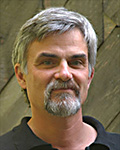Roland Merullo Plans One-Day Writing/Meditation Retreat (Micronesia)
Roland Merullo (Micronesia 1979-80) best-known novels are Breakfast with Buddha, In Revere, In Those Days, A Little Love Story, Revere Beach Boulevard and the memoir Revere Beach Elegy. His first novel Leaving Losapas came out in 1992 and A Russian Requiem was published in 1993. His latest book is entitled The Delight of Being Ordinary: A Road Trip with the Pope and the Dalai Lama.
Below is his September monthly newsletter in which he outlines a one-day writing/meditation retreat planned for this coming January. It is something that might interest you.
•
A note from Roland . . .
Dear Readers and Friends,
This note is being written on an absolutely perfect late summer afternoon in Western Massachusetts, with a warm sun angling in through the windows of my upstairs office and the bees, wasps, and dragonflies zipping around trying to grab the last of whatever it is they grab in this part of the world in September. Having enjoyed a nice outdoor lunch of gluten-free rotini with chopped-up tomatoes, anchovies, olive oil, and basil, with half a glass of Italian red wine, I am presently in the process of digesting. Soon I will head out with my wife and younger daughter to take my annual, mid-September swim at the lake, a refreshing cleansing ritual that looks, to witnesses, more courageous than it is: the water’s not that cold yet.
 In other news, I’m pondering the possibility of running a one-day writing/meditation retreat in Northampton, Massachusetts (details below), so kindly drop a note to me at roland@rolandmerullo.com if you think you might be interested. No commitment necessary at this point, but if there is a list, the people who respond first will have preference. The first or second Saturday of January is the target date.
In other news, I’m pondering the possibility of running a one-day writing/meditation retreat in Northampton, Massachusetts (details below), so kindly drop a note to me at roland@rolandmerullo.com if you think you might be interested. No commitment necessary at this point, but if there is a list, the people who respond first will have preference. The first or second Saturday of January is the target date.
This month, I want to write about meditation, which I often say is a practice that has kept me alive, or sane, or out of jail, or all three. Long ago – it might have been between my first and second years at Boston University – I remember running along the sand at Revere Beach and coming upon a guy in his mid-twenties who had his legs crossed, hands folded, eyes closed, and was sitting with his back to the hurricane wall. He was on the beach side of the wall, far down at the quieter northern end. Like the well-meaning but ignorant kid I was, I stopped, went up to him and asked if he was okay. He slowly opened his eyes, looked at me, nodded, and I went back to my workout. It occurred to me, belatedly, that he had been meditating.
A few years later, when I was rowing crew at Brown University, two of my teammates, Carl Critz and George Hutchinson, announced before a big race at Lake Onondaga, that they were going off to another room to meditate. I didn’t make fun of them – nobody did – but it seemed an alien activity, not for me, and I couldn’t really imagine how meditation would help them during the race.
I’m not sure exactly when that ignorance evaporated. I know that, when I was living in Rutland, Vermont during the fall and winter of 1977-78, after having just returned from the USSR, I had a regular meditation practice going, something I’d made up on my own. And I remember going on a centering prayer retreat, run by the Paulist Center radical Catholics in Boston in late ’78 or early ’79. And a three-day retreat at the Providence Zen Center in 1980. So I’ve had a meditation practice for forty years.
I wish I could say I’ve enjoyed mystical visions, or attained higher states of consciousness, whatever those might look like. But meditation, for me, has been more pedestrian than that. My mind doesn’t go completely blank – a misconception, I think, and if attainable at all, unlikely for most people except for brief stretches. There are days when it’s a thirty-minute session of mental overactivity, especially if I’m worried about someone or something, or had a bad night of sleep, or am expecting – as I am now – important news from the world of publishing.
Other times, though, there is a noticeable quietness, a slowing-down of the brain’s ordinary high-energy mode, moments of a peace and pleasure that is not describable but very real.
For me, the benefits of meditation are more easily measured when I’m not meditating than when I am. In high school I was undiagnosed bipolar, with glorious ups and awful downs. The ups were so addictive that it took me years to see how destructive the downs were. Though it took some years, meditation has completely cured me of that. I used to be much more prone to anger, thankfully rare but intense fits that were unpleasant for those around me (though more often took place in solitude, usually when I’d screwed up a carpentry project, or faced the assembly of a screen door with baffling instructions printed in very bad English.) I have never been a physically violent person – the fits didn’t go that far – but it was as if, most of the time, I was sitting at a nicely-set table, enjoying a meal, and then something would happen (the bad instructions) and suddenly I’d be throwing the whole thing up in the air, plates and glasses flying, food wasted, yours truly standing there in a proud huff, cursing, righteous, with the dark clouds of regret far out on the horizon, making their inevitable approach. The occasional anger, the regular moodiness – there was trouble beneath a happy exterior, and until I started meditating I had no access to that level of my mind, no perspective on it. In college, because of those mood swings, I ruined a couple of perfectly good relationships, and hurt people I did not mean to hurt.
Talk about clouds of regret. Talk about being grateful for a cure.
There are supposed to be physical health benefits to meditation as well as the mental ones. I’m not aware of any in my case, though maybe my low blood pressure and low heart-rate are partially attributable to the sessions.
Or maybe things for which I credit meditation – a kinder sense of myself and others; a greater awareness of my flaws (and, unfortunately, of others’); much less anger; a surer sense of what’s right and wrong for me, people I should be around and those I should avoid; the ability to have easy access to the stories I want to tell and the way to tell them – maybe all that – is simply a feature of aging. Compensation for the forgetting of names, the inability to run and jump, the facial hair in places you don’t want it and the lack of it in places you do.
But I don’t think so. In fact, I’m sure meditation has cleaned out a lot of the litter in my interior world. There are still messy rooms and alleyways; I suspect there always will be. But I enjoy life more. I’m unafraid of things like flying and swimming, which used to fill me with anxiety. I find pain and illness easier to deal with, and maybe I listen a little better than I once did.
I try never to proselytize in my books. Preaching is off-putting, and I have nothing to which to convert anyone anyway. Except maybe some contemplative practice. I often wonder what the country would be like if we all stopped for a few minutes every day and paid attention to the rush of thoughts, had more perspective on our moods and impulses, were better able to appreciate the pure fact of being, and the mysterious beauty that surrounds us every second.
Who knows? It has been helpful to me, that’s all I can say, and I have slipped my appreciation into a number of books, as attentive readers have surely noticed. I know plenty of good people who don’t meditate, and plenty of meditators who have unresolved ‘issues’. But I no longer make solid judgments on what’s right and wrong for others in terms of their mental peace (small, feeble, uncertain judgments, yes, I confess, but not big solid ones). I know that athletes and soldiers and schoolchildren are now being taught meditation, and I’m glad to hear it because another misconception is that it has to be linked to a spiritual practice or a particular religion. It does not.
The degree to which it has helped me in writing is not measurable. That’s the idea behind the one-day conference. The details are still sketchy, but it would likely stretch from 9 to 5, with a decent continental breakfast, coffee breaks, and ample time to wander into the town and sample its abundant and varied lunch offerings. The meditation sessions, probably four of them, would range from 15 minutes at the start of the day to an hour at the end, and if you need to get up and check your phone or stretch, I won’t care as long as you don’t disturb others. The writing assignment would focus on the first five pages of whatever it is you’re working on because those are the pages that matter most when submitting to an agent or editor. And the whole thing would be low-key, which is my style. As for cost, again I haven’t set it, but I’d expect it to be in the $300 range, the exact figure depending on the rental rate of the conference room, the food, a few modest gifts, and other factors.
In any case, whether you have any interest in meditation or not, may the beautiful day here extend to you, in both your exterior and interior worlds.
All my best wishes to you,
Roland
No comments yet.
Add your comment